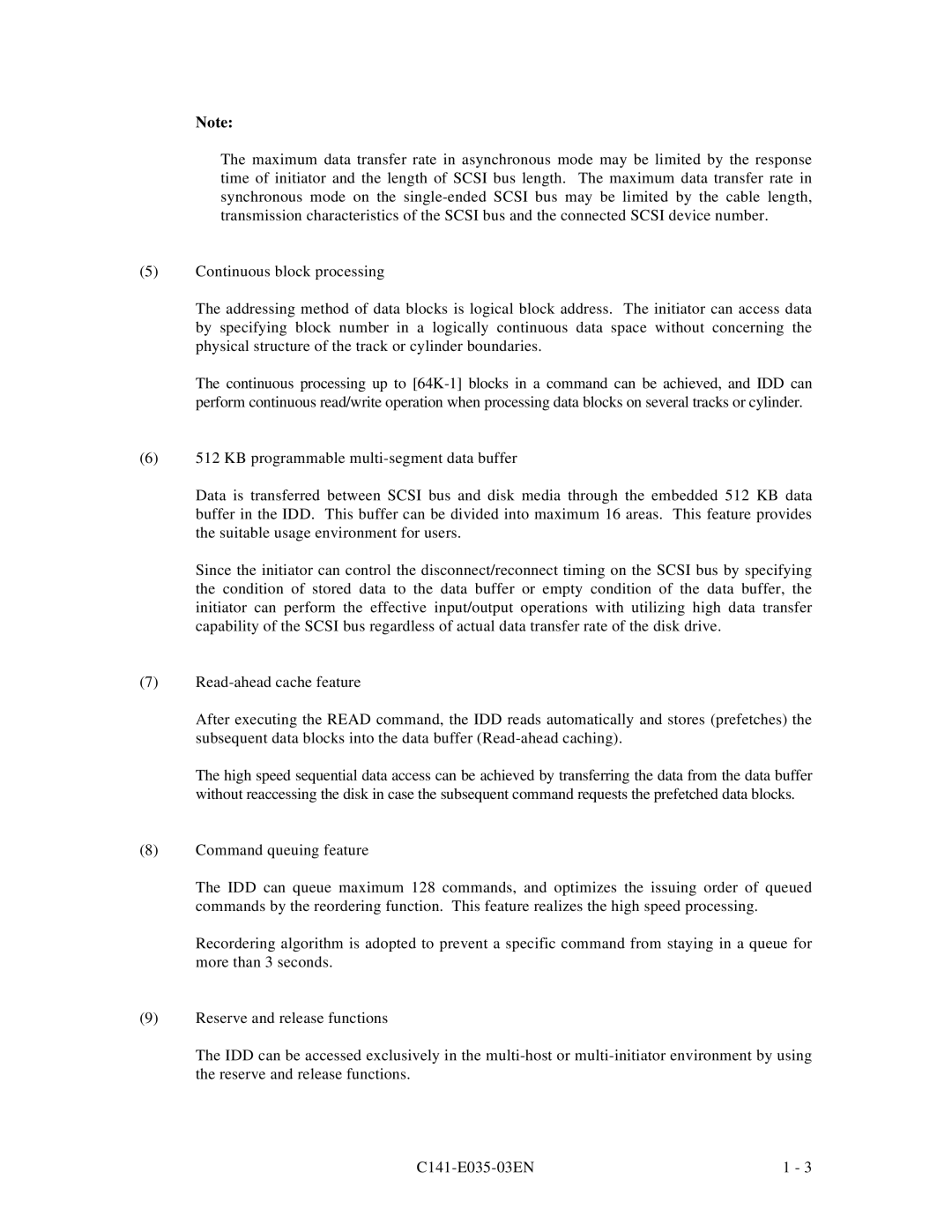Note:
The maximum data transfer rate in asynchronous mode may be limited by the response time of initiator and the length of SCSI bus length. The maximum data transfer rate in synchronous mode on the
(5)Continuous block processing
The addressing method of data blocks is logical block address. The initiator can access data by specifying block number in a logically continuous data space without concerning the physical structure of the track or cylinder boundaries.
The continuous processing up to
(6)512 KB programmable
Data is transferred between SCSI bus and disk media through the embedded 512 KB data buffer in the IDD. This buffer can be divided into maximum 16 areas. This feature provides the suitable usage environment for users.
Since the initiator can control the disconnect/reconnect timing on the SCSI bus by specifying the condition of stored data to the data buffer or empty condition of the data buffer, the initiator can perform the effective input/output operations with utilizing high data transfer capability of the SCSI bus regardless of actual data transfer rate of the disk drive.
(7)
After executing the READ command, the IDD reads automatically and stores (prefetches) the subsequent data blocks into the data buffer
The high speed sequential data access can be achieved by transferring the data from the data buffer without reaccessing the disk in case the subsequent command requests the prefetched data blocks.
(8)Command queuing feature
The IDD can queue maximum 128 commands, and optimizes the issuing order of queued commands by the reordering function. This feature realizes the high speed processing.
Recordering algorithm is adopted to prevent a specific command from staying in a queue for more than 3 seconds.
(9)Reserve and release functions
The IDD can be accessed exclusively in the
1 - 3 |
